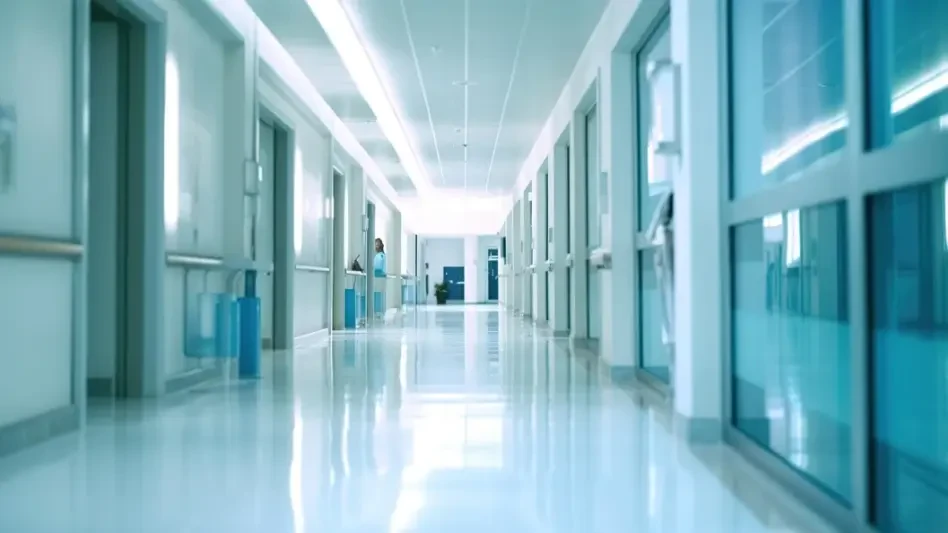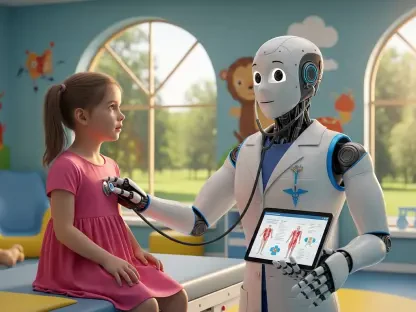Introduction
Imagine a family unable to afford critical medical care because a government shutdown has halted subsidies for millions, leaving 22 million Americans scrambling to cover insurance premiums and facing dire consequences. This stark reality has become a recurring theme in U.S. political crises, as health care emerges as a pivotal issue during government shutdowns. With political gridlock intensifying in recent years, the intersection of health care access and federal funding disputes captures public attention like never before. This analysis delves into the evolving role of health care as a central flashpoint in shutdown debates, examines current trends supported by data, incorporates expert insights, explores future implications, and distills key takeaways for understanding this critical issue.
The Rise of Health Care as a Shutdown Flashpoint
Shifting Narratives and Public Sentiment
Health care has surged to the forefront of government shutdown narratives, eclipsing other longstanding issues such as immigration. Recent polling data underscores this shift, with a KFF survey revealing that 78% of Americans, including a notable segment of conservative voters, support health care subsidies. Additionally, a CBS News/YouGov poll indicates that 36% of respondents now associate shutdowns primarily with health care disruptions, compared to a mere 5% linking them to border policies. This marked change reflects a broader public consensus on the urgency of protecting affordable care during political standoffs.
Democratic messaging has played a significant role in reframing these crises, consistently highlighting the stakes for millions dependent on federal health programs. This strategic focus has resonated widely, as evidenced by media coverage and public discourse increasingly centering on health care over other partisan priorities. The shift in narrative demonstrates how effectively one party can shape the conversation, turning a complex policy debate into a relatable concern for everyday citizens.
Public pressure on policymakers has intensified as a result, with growing frustration over disruptions to funding that directly impact access to essential services. As shutdowns drag on, the risk of delayed care or skyrocketing costs looms large for vulnerable populations. This mounting concern signals a demand for accountability, pushing elected officials to prioritize health care solutions amid fiscal disputes.
Real-World Impacts and Political Strategies
The tangible effects of government shutdowns on health care are profound, often leaving millions in limbo. Delays in extending subsidies affect approximately 22 million Americans, forcing many to grapple with unaffordable premiums or forgo coverage altogether. Similarly, disruptions to Medicaid services create immediate hardships for low-income families, exacerbating existing inequities in access to medical support during times of political uncertainty.
Political strategies further complicate the landscape, with stark contrasts in party approaches. Republicans have pushed legislation like the “Working Families Tax Cut Act,” which proposes $1 trillion in Medicaid cuts, potentially reducing enrollment by 10 million individuals. On the other hand, Democrats have insisted on immediate concessions to safeguard subsidies, framing their stance as a defense of public health against fiscal conservatism. These opposing tactics highlight the deep ideological divide fueling shutdown impasses.
Historical case studies reveal the recurring centrality of health care in such crises. During past shutdowns, vulnerable groups—such as children reliant on federal programs—faced delayed treatments and reduced services, underscoring the human cost of political gridlock. These examples serve as stark reminders of the consequences when health care becomes a bargaining chip, amplifying calls for more resilient policy frameworks to prevent similar outcomes in future disputes.
Expert Perspectives on Health Care in Shutdown Politics
The significance of health care in shutdown negotiations draws varied insights from political analysts and policy experts. Marc Short, a former chief of staff to Vice President Pence, has suggested that Republicans might eventually concede on subsidy extensions due to mounting public pressure, signaling a potential shift in party dynamics. This prediction points to the strategic challenges faced by conservatives in maintaining a hardline stance on an issue resonating deeply with voters.
Congressional leaders also weigh in, emphasizing the urgency of resolution. Senator Patty Murray has repeatedly stressed the need to prevent premium hikes that could devastate families, advocating for swift action to protect health care access. Her perspective reflects a broader concern among Democrats that delays in funding risk long-term damage to public trust in the government’s ability to address essential needs during crises.
Experts further highlight the delicate balance between partisan priorities and public health imperatives. Many note that while short-term political wins are often sought, the erosion of confidence in governance due to repeated shutdowns could have lasting repercussions. This tension underscores a critical challenge: crafting policies that satisfy ideological bases while ensuring that millions are not left without vital care, a dilemma that continues to shape legislative strategies.
Future Implications of Health Care in Shutdown Debates
Looking ahead, health care is likely to remain a dominant issue in government shutdowns unless bipartisan mechanisms emerge to insulate critical programs from political brinkmanship. If unresolved, this trend could deepen public frustration, further polarizing debates around federal funding. However, the potential for compromise exists, with some analysts suggesting that shared recognition of health care’s importance might spur collaborative efforts to prioritize access over partisan wins.
The benefits of addressing these disputes are clear, including enhanced affordability and stability for millions reliant on government-supported care. Yet challenges persist, particularly within Republican ranks where internal divisions over concessions create friction, while Democratic resolve to hold firm on immediate action adds pressure. Navigating these dynamics will test the ability of lawmakers to forge consensus on an issue that transcends party lines in its impact on everyday lives.
Broader implications extend across health policy and electoral landscapes, shaping public expectations in significant ways. Persistent gridlock risks entrenching partisan divides, potentially hindering comprehensive reform. Conversely, successful resolution could set a precedent for cooperation, influencing voter perceptions and outcomes in future elections by demonstrating that governance can prioritize public good over political posturing, offering a path toward more sustainable health care frameworks.
Conclusion and Call to Action
Reflecting on the past, it is evident that health care has solidified its place at the heart of government shutdown narratives, driven by compelling public opinion trends and sharp partisan strategies. Expert analyses have illuminated the complexities of balancing political agendas with urgent health needs, while discussions on future possibilities hint at both persistent challenges and glimmers of bipartisan hope. Moving forward, actionable steps must focus on building safeguards that shield essential health programs from fiscal disputes, ensuring stability for millions. Policymakers are urged to explore innovative frameworks for funding continuity, while stakeholders at all levels need to advocate for prioritizing access over partisan divides. This moment demands a renewed commitment to dialogue, pushing for solutions that uphold the fundamental right to care even amidst political turbulence.









